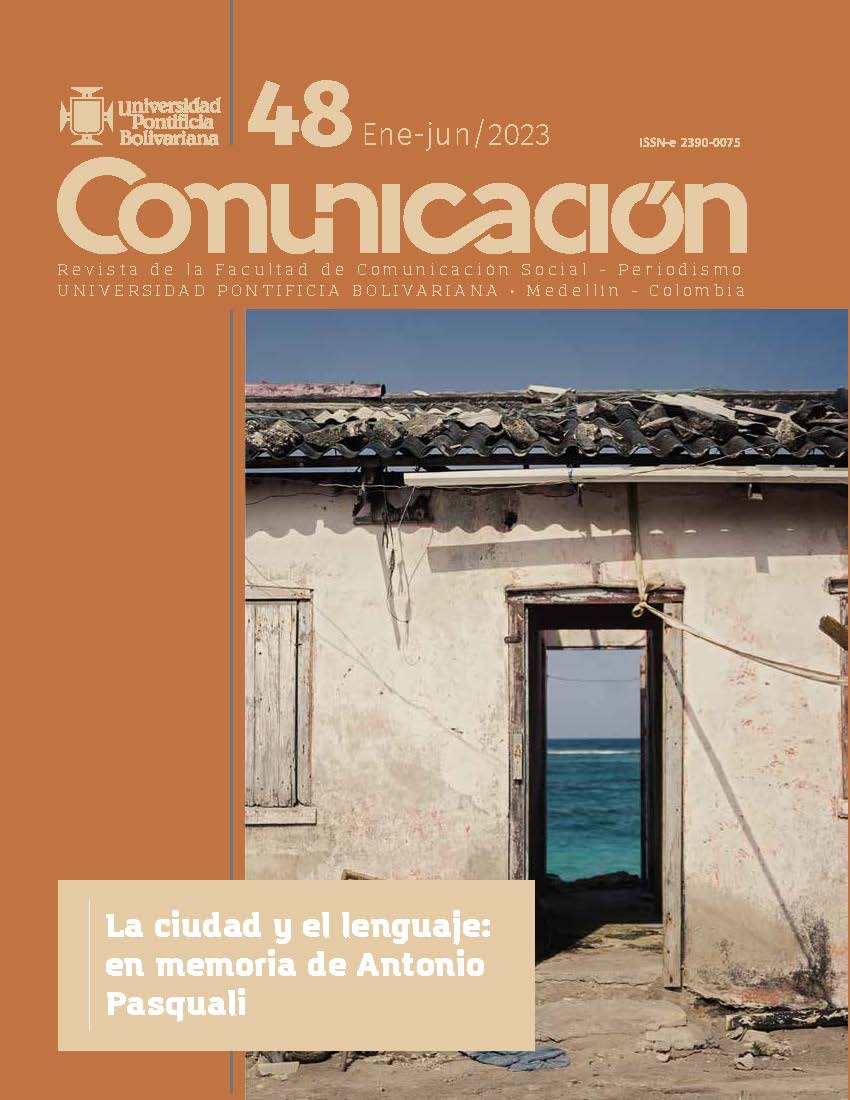Recurring dynamics in the cultural dialogue between international migrants and the neighborhood environments. The case of La Floresta, in Medellín
Main Article Content
Abstract
The article presents the forms of cultural dialogues between international migrants and hosts in La Floresta, a neighborhood of Medellín, pointing out the role that the appropriation and uses of urban space and educational institutions play in these, as well as the scenarios of hybridization and resistance that take place. they give in relation to the institutionality and the age of the inhabitants of the territory. Plasticity, negotiations and cultural resistance that occur in everyday scenarios and in various age groups are identified from an ethnographic and hermeneutic exercise. For the research development, workshops were held with students from educational institutions, also semistructured interviews with migrants, representatives of social institutions and, finally non-participant observation. After this process, it was possible to identify how in the youngest people, whose identities are being strengthened and are permeated by the ease of access to global information, cultural resistance is less and that, for this reason, they operate in their homes as promoters of these intercultural dialogues. Likewise, the relevance of the common cultural elements in the construction of these dialogues and of the public space as a setting for them was evidenced.
References
Anderson, B. (1993). Comunidades imaginadas: reflexiones sobre el origen y la difusión del nacionalismo. Fondo de Cultura Económica.
Arroyave, S. (2020). Características sociodemográficas y socioeconómicas de las mujeres venezolanas. Conversatorios Formativos SCCP, conversatorio llevado a cabo en la Universidad Pontificia Bolivariana, Medellín.
Blanco, C. (2000). Migraciones contemporáneas. Alianza Editorial.
Bourdieu, P. (1988). La distinción: criterios y bases sociales del gusto. Grupo Santillana.
Bourdieu, P. (2007). El sentido práctico. Siglo XXI Editores
Centro Nacional de Memoria Histórica [CNMH]. (2015). Una nación desplazada: informe nacional del desplazamiento forzado en Colombia. CNMH - UARIV.
García Canclini, N. (1990). Culturas híbridas: estrategias para entrar y salir de la modernidad. Editorial Grijalbo.
Giménez, G. (2010). La cultura como identidad y la identidad como cultura. En G. Castellanos, D. Grueso y M. Rodríguez, Identidad, cultura y política: perspectivas conceptuales, miradas empíricas (pp. 35-59). Universidad del Valle.
Hall, S. (2010). Sin garantías: trayectorias y problemáticas en estudios culturales. Envión.
León, L. R. (2017). Nostalgia del paladar. Identidad y prácticas alimentarias en tensión de los inmigrantes colombianos refugiados en Quito y jubilados estadounidenses en Cotacachi [tesis de maestría]. Facultad Latinoamericana de Ciencias Sociales (Flacso), Quito, Ecuador.
Lie, R. (2002). Espacios de comunicación intercultural. AIECS.
Llano, I. (2008). Inmigración y música latina en Barcelona: el papel de la música y el baile en procesos de reafirmación e hibridación cultural. Sociedad y Economía, (15), 11-36.
Lotero, G., Romero, L. y Pérez, M. (2020). Migración masiva venezolana en Colombia: estudio de news framing en cibermedios de referencia. Anàlisi, 63. https://doi.org/10.5565/rev/analisi.3280
Medina, X., Sabores Culturales. En Espeitx, E. y Cáceres, J. (2011). Ensayos sobre alimentación y cultura. Editorial Montesinos.
Migración Colombia. (2020). Venezolanos en Colombia, corte a 31 de diciembre 2019. https://www.migracioncolombia.gov.co/infografias/259-infografias-2020/total-devenezolanos-en-colombia-corte-a-31-de-diciembre-de-2019
Peláez, J. A. (2020). Vicepresidente JAC La Floresta [comunicación personal].
Pineda, E. y Ávila, K. (2019). Aproximaciones a la migración colombo-venezolana:desigualdad, prejuicio y vulnerabilidad. Clivatge, 7, 46-97.
Quiroz, A., Velázquez, A., García, B. y González, S. (2002). Técnicas interactivas para la investigación social cualitativa. Pontificia Universidad Javeriana, sede Cali.
Salinas, H. (2021). Aproximación hermenéutica al cuento Embargo de José Saramago. Escritos, 63(29), 247-263.
Sennett, R. (2019). Construir y habitar: ética para la ciudad. Editorial Anagrama.
Stefoni, C. (2017). Panorama de la migración internacional en América del Sur. Cepal.






